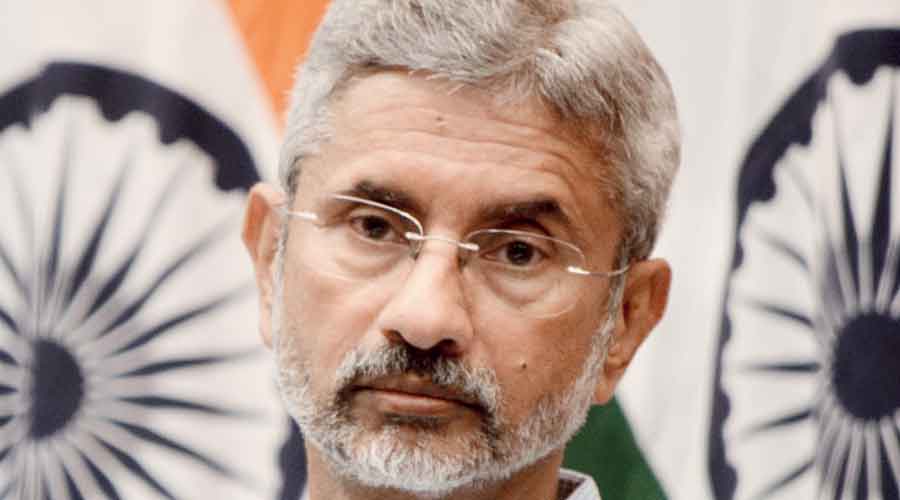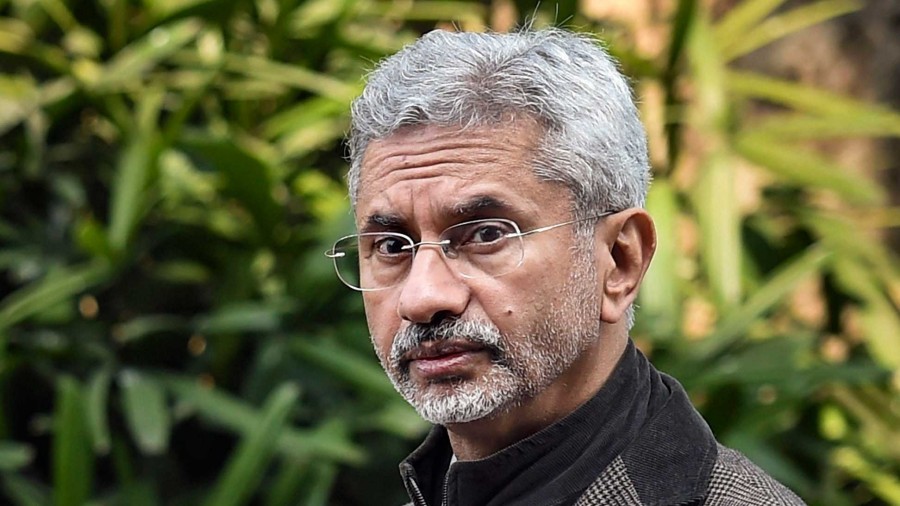External affairs minister S. Jaishankar on Friday flagged the connectivity issues India has with Central Asia and Eurasia because of Islamabad’s stance on transit trade agreements and Beijing’s disrespect for India’s sovereignty. He did not name Pakistan or China.
Addressing the plenary session of the Central and South Asia Connectivity Conference in Tashkent, Jaishankar said: “The challenge we face is that politics, vested interests and instability can be formidable impediments to its realisation.”
He added: “There are lessons too from our experiences that need to be understood. The real issues are of mindsets, not of disputes. Blocking connectivity in practice while professing support in principle benefits no one. A one-sided view of trade rights and obligations can never work. No serious connectivity can ever be a one-way street.”
It was clear that Jaishankar’s target was Islamabad, which has not allowed the Afghanistan-Pakistan Transit Trade Agreement to be a two-way street.
While Afghanistan is allowed to send its goods by land through Pakistan to India, Islamabad does not allow India to export to Afghanistan via the land route, which would have given India access beyond Afghanistan to Central Asia.
Further, according to Jaishankar, building connectivity is an act of trust and must, at the minimum, conform to international law.
“Respecting sovereignty and territorial integrity are the most basic principles of international relations,” he said.
This was an allusion to China. India objects to the China-Pakistan Economic Corridor running through Pakistan-occupied Kashmir. The corridor is a flagship project of the Belt and Road Initiative (BRI), China’s ambitious connectivity project linking East Asia to Europe.
Although China had invited India to join the BRI, a throwback to the ancient Silk Route, New Delhi decided to stay away, citing sovereignty and territorial integrity issues as the corridor runs through PoK.
Given how the four-decade-old strife in Afghanistan has affected transit projects including gas pipelines, Jaishankar also emphasised that development and prosperity go hand in hand with peace and security.
“For reliable connectivity within and through Afghanistan, the world must have confidence in its governance. Our connectivity deliberations expect predictability, efficiency and observance of norms of our time as its foundation,” he said.
He was articulating the growing worldwide concern at the situation in land-locked Afghanistan with the Taliban gaining control over large swathes of territory after the US withdrawal.
The meeting also saw a heated exchange between Pakistan and Afghanistan, with President Ashraf Ghani accusing Islamabad of continuing its links with the Taliban.
Ghani said over 10,000 jihadi fighters had entered Afghanistan over the last month and that Islamabad had failed to convince the Taliban to participate seriously in peace talks. He was alluding to pro-Taliban elements celebrating the destruction of assets in Afghanistan.
Pakistan Prime Minister Imran Khan, who is attending the conference, expressed disappointment at Ghani blaming Islamabad for the situation in Afghanistan.
He said Pakistan had faced the blowback of the conflict in Afghanistan and knew that it would also face the effects of the recent turbulence in its neighbourhood.
Imran added that the Taliban were no longer willing to compromise after the US set a date for troops withdrawal.













